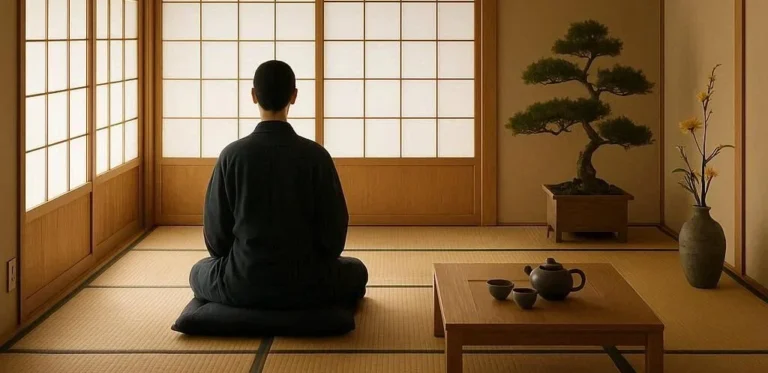501 views The Untold Stories of Lesser-Known Samurai Heroes
The samurai, members of the warrior class in Japan from the 12th to the 19th centuries, are widely recognized for their martial prowess, honor, and adherence to the Bushido code. While many famous samurai, such as Miyamoto Musashi and Tokugawa Ieyasu, have been celebrated in history and popular culture, there are countless lesser-known samurai heroes whose stories remain untold. These individuals, though not household names, played significant roles in shaping Japanese history, demonstrating courage, loyalty, and wisdom that continue to inspire us today.
In this blog post, we will delve into the lives of some of these lesser-known samurai heroes, exploring their untold stories and the impact they had on their time.
Beyond the Legends: Unveiling Forgotten Samurai Tales
While the exploits of famous samurai have been well-documented, the stories of others have faded into obscurity. These lesser-known heroes often led extraordinary lives, marked by bravery, sacrifice, and a deep commitment to their principles. Their stories offer a unique glimpse into the complexities of samurai culture and the diverse roles they played in Japanese society.
The Life and Legacy of Tsukahara Bokuden
One such lesser-known samurai is Tsukahara Bokuden, a 16th-century warrior and swordsman who traveled extensively throughout Japan and even ventured abroad. Bokuden is known for his remarkable journey to the Ming dynasty in China, where he gained valuable insights into foreign cultures and martial arts techniques. His experiences abroad not only enriched his understanding of warfare but also influenced his approach to conflict resolution.
Bokuden’s life was marked by a blend of adventure and wisdom. He was not only a skilled warrior but also a philosopher who wrote extensively on the nature of warfare and the importance of adaptability. Despite his significant contributions, Bokuden remains a relatively unknown figure, overshadowed by more famous contemporaries like Oda Nobunaga and Toyotomi Hideyoshi.
Yagyū Munenori: The Strategist and Philosopher
Yagyū Munenori, another lesser-known samurai, was a master swordsman and strategist who served as a daimyō (feudal lord) during the early Edo period. Munenori is best known for his treatise on strategy, The Life-Giving Sword, which explored the principles of victory and the importance of understanding one’s opponent. His work was not only a guide for warriors but also a philosophy for life, emphasizing the need for balance and harmony in all endeavors.
Munenori’s approach to warfare was unique. He advocated for the use of strategy over brute force, believing that true strength lay in outwitting one’s enemy rather than relying solely on physical prowess. His teachings continue to be studied by martial artists and strategists around the world, offering timeless lessons on the art of conflict resolution.
The Cultural Significance of Lesser-Known Samurai Heroes
The stories of these lesser-known samurai heroes are not just fascinating tales of adventure and bravery; they also provide valuable insights into the cultural and historical context of Japan during the samurai era. By examining their lives and achievements, we can gain a deeper understanding of the samurai code, the role of women in samurai society, and the impact of foreign influences on Japanese culture.
The Role of Women in Samurai Society
One of the most overlooked aspects of samurai history is the role of women. While the samurai class was predominantly male, there were female warriors, known as onna-bugeisha, who played important roles in battle and within their families. These women were trained in martial arts and were expected to defend their homes and honor if necessary.
The stories of onna-bugeisha, such as Tomoe Gozen, a female warrior who fought in the Genpei War, offer a unique perspective on the diversity of samurai society. Despite their contributions, the achievements of female samurai are often overshadowed by those of their male counterparts, making their stories even more compelling and deserving of attention.
The Influence of Foreign Cultures on Samurai
The samurai era was also a time of cultural exchange, particularly during the Sengoku period, when Japan was exposed to foreign influences from China, Korea, and Europe. These interactions had a profound impact on samurai culture, influencing everything from warfare tactics to artistic expression.
For example, the introduction of firearms from Europe during the 16th century revolutionized Japanese warfare, forcing samurai to adapt their strategies and tactics. Similarly, the influence of Chinese philosophy, particularly Confucianism, shaped the samurai code of conduct, emphasizing the importance of loyalty, respect, and self-discipline.
The Legacy of Lesser-Known Samurai Heroes
The legacy of lesser-known samurai heroes can be seen in the many ways their lives and achievements continue to inspire and influence modern society. Their stories serve as a reminder of the complexity and richness of Japanese history, offering insights into the values and principles that defined the samurai class.
The Enduring Appeal of Samurai Culture
The appeal of samurai culture remains strong, both in Japan and around the world. From films and literature to martial arts and philosophy, the samurai continue to captivate audiences, offering a glimpse into a bygone era of honor and discipline.
The stories of lesser-known samurai heroes add another layer to this cultural tapestry, demonstrating that there is still much to learn and discover about this fascinating period in history. By exploring these untold stories, we can gain a deeper appreciation for the diversity and complexity of samurai culture, as well as the individuals who shaped it.
Preserving the Histories of Forgotten Heroes
Preserving the histories of lesser-known samurai heroes is an important task, not just for historians and scholars, but for anyone interested in understanding the rich cultural heritage of Japan. By sharing these stories, we can ensure that their legacies live on, inspiring future generations to explore the depths of samurai history.
In conclusion, the untold stories of lesser-known samurai heroes offer a fascinating glimpse into the lives of individuals who played a significant role in shaping Japanese history. Their tales of bravery, wisdom, and cultural exchange remind us of the complexity and richness of samurai culture, and the many lessons it continues to teach us today.
If you enjoyed this blog post and would like to learn more about samurai history, please share your thoughts in the comments below. You can also explore more resources on samurai culture by visiting Wikipedia or checking out reputable historical sources like Britannica. For those interested in martial arts, consider exploring the teachings of Yagyū Munenori in his treatise, The Life-Giving Sword, which offers timeless insights into strategy and philosophy.
Thank you for joining us on this journey into the untold stories of lesser-known samurai heroes. Stay tuned for more fascinating explorations of history and culture!





